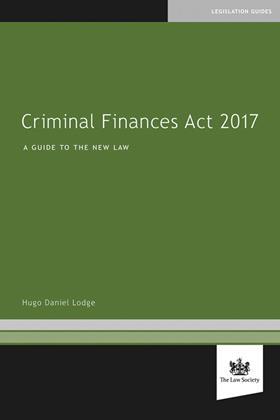Criminal Finances Act 2017: A Guide To The New Law
Hugo Daniel Lodge
£59.95, Law Society Publishing
This concise guide to the Criminal Finances Act 2017 will be a valuable asset to those advising people who fall under suspicion of committing the newly created offences of failing to prevent facilitation of tax evasion, introduced as a result of the notorious Panama Papers.

Each chapter deals with the new offences in turn and provides a worked example to set out how the offences may be committed. The author rightly highlights the deliberately wide sweep of the act, in terms of its reach across UK and foreign jurisdictions, and the reverse burden of proof incumbent on the suspect to demonstrate that they had taken ‘reasonable prevention measures’.
There is no longer a need for the authorities to identify a ‘controlling mind’ within the facilitating company but there will be a need for legal advisers to identify exactly what status a facilitator had at the time of the facilitation. An introducer can become an agent and close attention will have to be paid as to what degree of control a corporate client may have had over an individual.
Although the act makes changes to the Proceeds of Crime Act 2002, it requires that applications for unexplained wealth orders are made to the High Court, which is a little odd given that the purpose of POCA was to make the Crown court a ‘one-stop shop’ for confiscation proceedings.
Lodge is concerned that applications for information sharing and disclosure under the act require no judicial scrutiny, but that non-compliance with such a request enables the investigator to seek an order from the magistrates’ court. He hopes that such applications are listed before specialist extradition magistrates, or at least stipendiary magistrates. I fear that he will be disappointed as the ‘Stipe’ ceased to exist following the Courts Act 2003.
Adrian Lower is a district judge (magistrates’ courts)































No comments yet